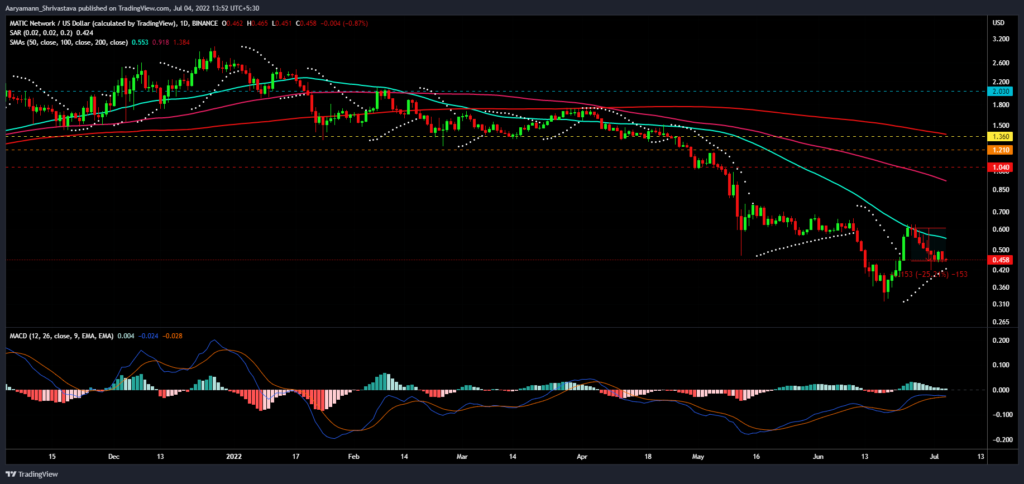Polygon has made a name for itself in the DeFi space. It is the third-largest chain in terms of the number of active protocols.
Recently, the blockchain took a step in the direction of advancing Web3. But the development did not have any positive influence on the price of MATIC.
Polygon Avail tale
Avail was not just another update to the Polygon blockchain. Avail focuses on scaling the blockchain by separating the three main functions of every blockchain. This, by turning them into three dedicated chains for Settlement, Execution, and Availability.
With Avail, users can cut down their cost of operations by almost 80-95% on chains like Ethereum by storing the execution layer data on it instead of moving the layer off-chain.
The development serves to be a significant improvement for Polygon. However, particular to Polygon, there has been no significant reaction from its investors since the broader market is highlighting bearish cues.
Trading at $0.456, MATIC has declined by over 25.2% in the last ten days. And, it still holds the potential to sink further. This is because the entire market is taking a hit, having lost more than $100 billion in the last few days with hints of more drawdown expected in the future.
Polygon price action | Source: TradingView – AMBCrypto
Similarly, in the case of MATIC, MACD and Parabolic SAR’s trend indicators are on the cusp of exhibiting bearishness. Primarily, because the altcoin lost the opportunity of flipping the 50-day Simple Moving Average (SMA) into support on 26 June.
This will keep the investors subdued for a while since the current on-chain conditions don’t provide them an incentive to be active.
The evidence of the same is visible in the transactions that have been conducted in the month of June. MATIC amounting to $127 million on average, was observed to have been moved around at the price point way below its buying price.

Polygon transactions in loss | Source: Santiment – AMBCrypto
In fact, this $127 million only represents a tiny sliver of the actual holdings of the 392.85k investors that have been facing losses for more than seven months now.

Polygon investors far from profits | Source: Intotheblock – AMBCrypto
MATIC’s price trajectory will see improvements only when the broader market recovers.


